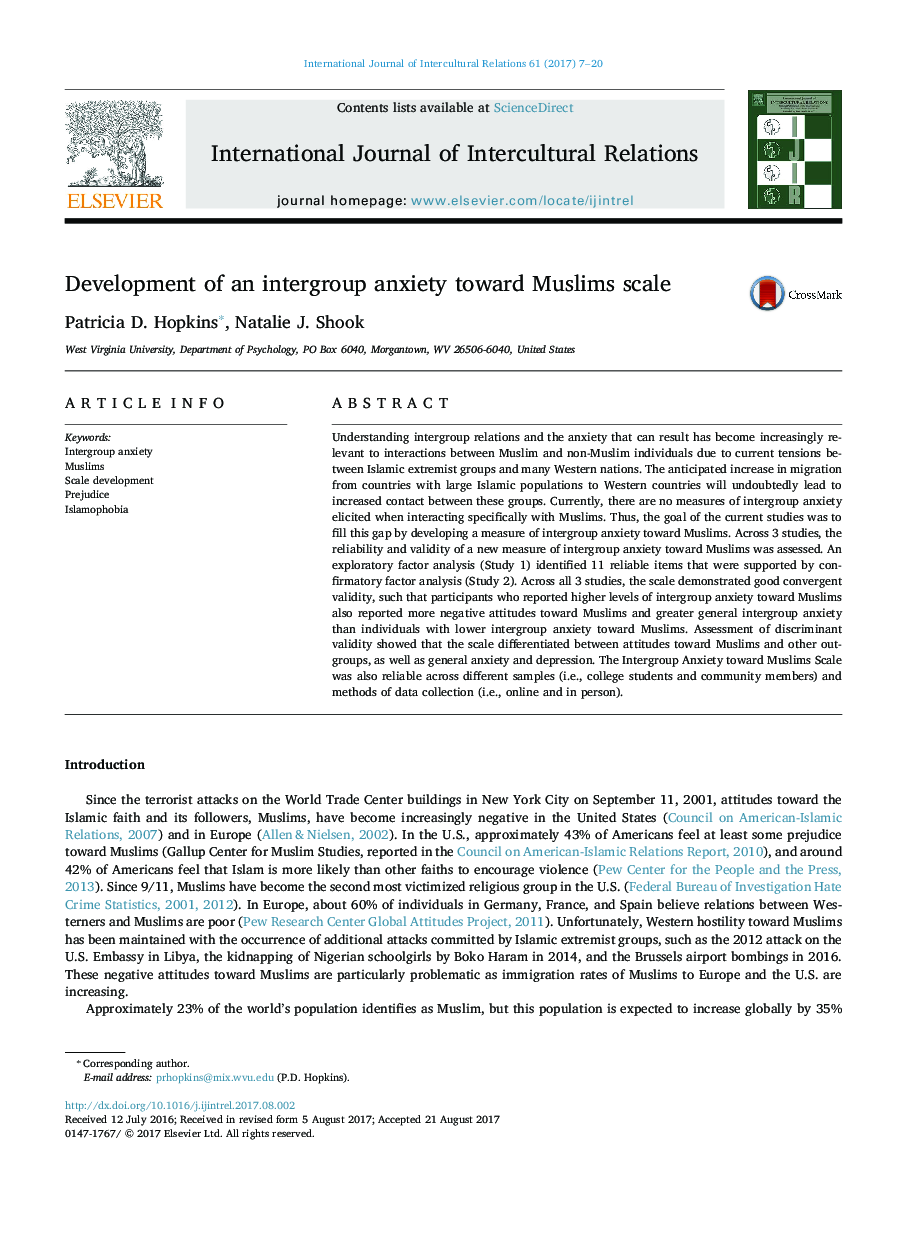| Article ID | Journal | Published Year | Pages | File Type |
|---|---|---|---|---|
| 5045507 | International Journal of Intercultural Relations | 2017 | 14 Pages |
Understanding intergroup relations and the anxiety that can result has become increasingly relevant to interactions between Muslim and non-Muslim individuals due to current tensions between Islamic extremist groups and many Western nations. The anticipated increase in migration from countries with large Islamic populations to Western countries will undoubtedly lead to increased contact between these groups. Currently, there are no measures of intergroup anxiety elicited when interacting specifically with Muslims. Thus, the goal of the current studies was to fill this gap by developing a measure of intergroup anxiety toward Muslims. Across 3 studies, the reliability and validity of a new measure of intergroup anxiety toward Muslims was assessed. An exploratory factor analysis (Study 1) identified 11 reliable items that were supported by confirmatory factor analysis (Study 2). Across all 3 studies, the scale demonstrated good convergent validity, such that participants who reported higher levels of intergroup anxiety toward Muslims also reported more negative attitudes toward Muslims and greater general intergroup anxiety than individuals with lower intergroup anxiety toward Muslims. Assessment of discriminant validity showed that the scale differentiated between attitudes toward Muslims and other out-groups, as well as general anxiety and depression. The Intergroup Anxiety toward Muslims Scale was also reliable across different samples (i.e., college students and community members) and methods of data collection (i.e., online and in person).
